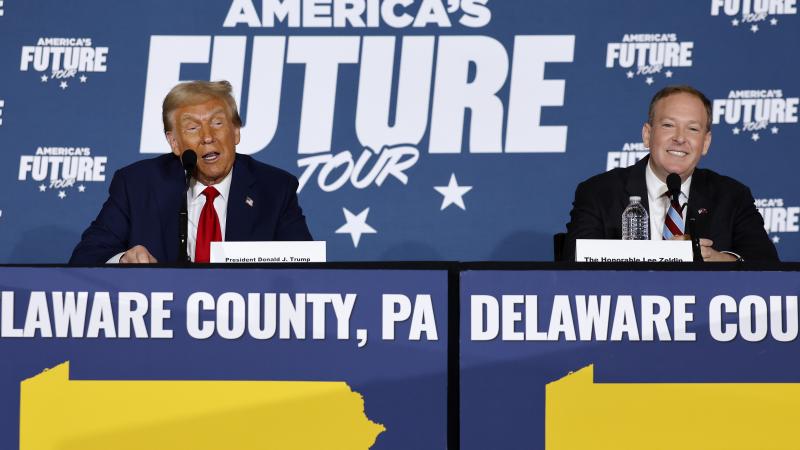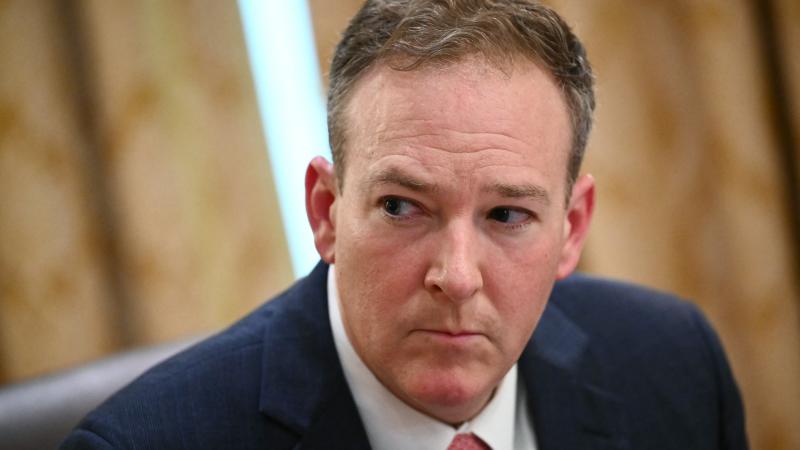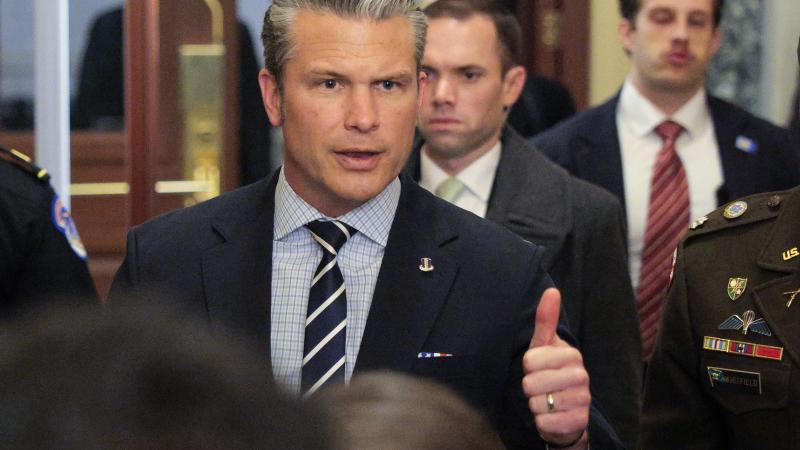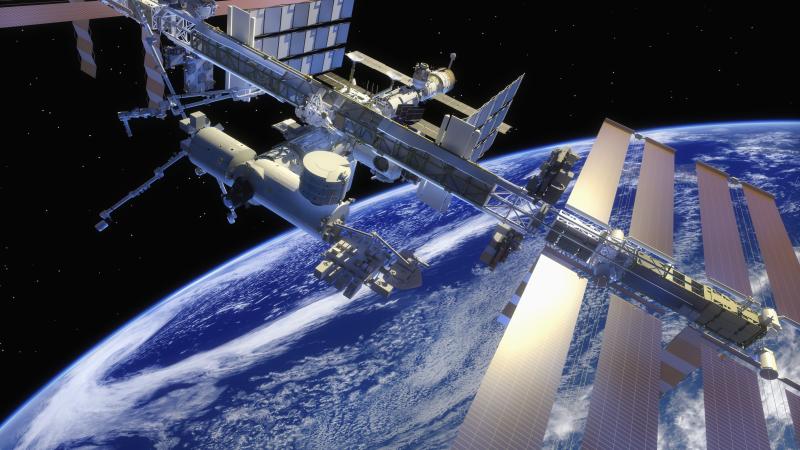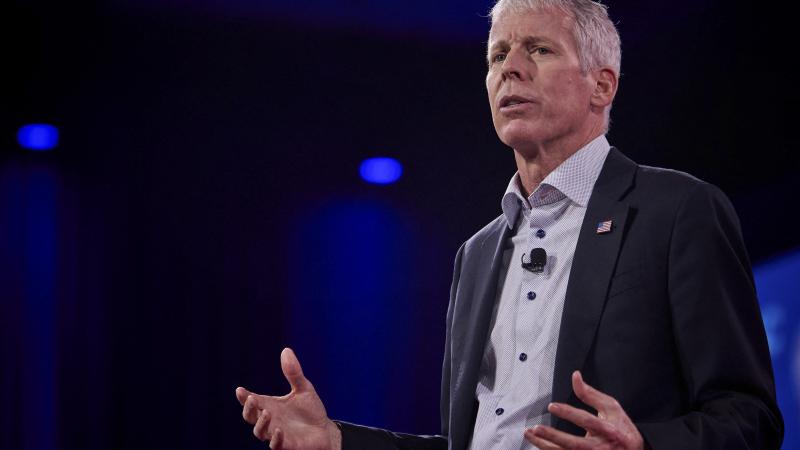On Maui fires, Hawaii governor cites climate change as having ‘amplified the cost of human error’
Evidence indicates the main cause of the fires were substantial failures from local and state officials to prevent and respond to the blaze that has claimed more than 100 lives fo far.
Speaking to CBS’s "Face the Nation" on Sunday, Hawaii Gov. Josh Green discussed the tragic Maui fires that have claimed at least 114 lives and left hundreds more missing. He blamed climate change for "amplifying" human error and downplayed evidence of officials and utility companies failing to properly respond and prepare.
Currently, Hawaiian Electric is one of several electric companies named in a lawsuit alleging they "knew of the extreme fire danger" that power lines could cause due to high winds but chose not to deenergize them "even after" they fell to the ground.
Video footage has surfaced appearing to show a downed power line in Lahaina on August 8, sparking on dry grass. Hawaiian Electric has also known for several years that more needed to be done to prevent power lines from causing fires but was instead putting emphasis on renewable energy, according to The Daily Mail.
"I don't know personally whether or not the power lines were the primary reason the fire occurred," Green said, adding that he’s asked for a review to determine whether it was.
"We have to ask the question on every level of how any one city, county, state could have done better and the private sector. This is the world that we live in now. In this case, and I've seen footage of it from some of the survivors, I've seen footage of how it looked during the fire and how things were exploding and what the fierce winds looked like," the governor said.
"They were 80 miles per hour gusting and the fire, I'm now told, was as high as 2,000 degrees Fahrenheit. It just destroyed everything. It's not to excuse anything else from any company. It's just to explain what the world should prepare for."
"So just to be clear," CBS host Margret Brennan responded, "when you’re talking about global warming, are you saying climate change amplified the cost of human error?"
"Yes, it did," Green answered.
"There's always going to be decisions that are made that I'm sure aren't perfect in the moment" Green continued. "But when you have fire that moves more than a mile a minute, and what happened, I'm told by some of the survivors, they were at the initial fire. It was put out sometime late in the afternoon in Lahaina, and then the firefighters had to go to three other fires that had started because of the conditions. When they left, the fire started up again. And then when the storm winds from Dora, which were that strong, swept it out, it just destroyed everything."
"So, there's no excuses to ever be made. But there are finite resources sometimes in the moment."
On top of the utility companies’ controversy, Maui’s Emergency Management Agency has received harsh rebuke for failing to trigger the island-wide warning sirens, a decision defended by the agency’s head, Chief Herman Andaya.
Andaya resigned the following day.
A February 2022 report from the agency also listed Hawaii citizens at "low" risk of death from wildfires and considered such blazes a "medium" risk to property and the environment.
Property destruction from the fires is estimated to be several billion dollars, in addition to the thousands of acres that have been razed.
Another Hawaii official, deputy director of the Hawaii Commission on Water Resource Management Kaleo Manuel, reportedly delayed water releases for more than five hours to fight the wildfires due to his "equity" concerns, saying that he sees "water as a sacred god[...] it as a sacred resource that should be revered and not used." He added that he "considered water an important tool for social justice."
Manuel is being described by outlets as the former Deputy Director for the Commission on Water Resource Management, but LinkedIn still lists him as employed there.
Author Michael Shellengberger, a frequent contributor to Forbes magazine on environmental issues, posted on X (formerly Twitter) last week, that despite media claims, climate change "didn’t" cause Maui’s fires.
"The main causes were the under-investment in fire prevention and the refusal by the state to release water to firefighters," he said. "And those decisions were driven by unhinged climatism and Wokeism."
Elaborating on his claims via his Substack, Shellenberger challenged the mainstream narrative surrounding the tragedy, saying the heavy winds that caused the fires to spread so quickly came from Hurricane Dora, "and the best available science shows no increase in hurricanes at global or national levels."
"It’s true that there’s been a 31% decline in average yearly rainfall in Hawaii since 1990," he continued, citing research, but "other changes" like larger storms traveling more northward make it "more difficult to tie to rising global temperatures."
Non-native grasses, shrubs, and other highly flammable vegetation are also cited as key drivers of the fires’ intensity. University of Hawaii-based Wildfire specialist Dr. Clay Trauernicht had warned for years that these factors posed an increasing risk of fire erupting across the islands.
Just the News has reached out to Green and the Emergency Management division for comment but no response has been forthcoming.
Follow Addison on Twitter.


